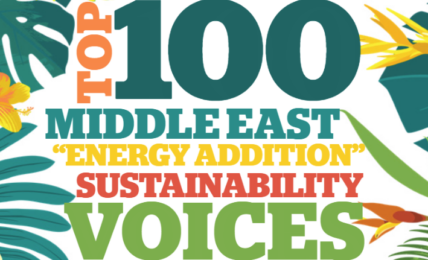By: Daisy Shen, Head of Climate Change and Sustainability at KPMG in China
As I arrived in Baku this week, I was pleasantly surprised to see so many delegates from across the world and from across different industries, civic groups and governments. In recent months, the increased politicization of the climate debate has sparked much talk about the relevance of summits like COP29. It would be remiss of me to ignore the fact that this year’s meeting faces challenges. The news that some national delegations have decided not to attend shows that it is critical that commitments should be turned into actions and now.
We’re facing an uphill battle and a race against time to meet the tough, but necessary 2030 climate mitigation targets. Despondency and a sense of defeat could so easily creep in to the decision-making process over the next few days and weeks, but accepting that there’s nothing we can do is not an option. We know what will happen to our planet if we fail to act. How we respond today will matter tomorrow.
I’m attending this year’s COP summit to focus on the green transition. I’ll be speaking at a number of events, including hosting a panel on the ‘green transition’ as part of KPMG Global Program for COP29. In the coming days, politics and bureaucracy will no doubt dominate much of the reporting of events in Azerbaijan. It’s only natural that bringing representatives from across society and a vast array of regions and territories will cause tensions and slow down the decision-making process, but hearing all voices is essential. We all have a stake in the future of our planet.
Achieving a net zero is a common goal for every business, government and citizen in the world. We can make the world more sustainable and achieve the far-reaching ambitions we’ve set by coming together and collaborating. For KPMG, our role is clear. We can offer our own insight and expertise, but our primary goal is to convene and ensure we are bringing together the influencers, the decision-makers and the impacted. Different voices will always have different views, but I have no doubt we all recognize what lies ahead if we can’t find common ground.
As nations assemble at COP29 in Baku, Azerbaijan, one issue is expected to dominate the summit: climate finance. It’s vital we make some progress in particular in emerging markets, of which there are several in Asia, where I am from.
Previous summits moved forward the issues of adaptation, resilience finance, and broader support for developing nations and those who have been among the least polluting nations but may be among the most impacted.
I’m also hoping to share my knowledge in Baku on Scope 3 – it may attract fewer news headlines, but it’s vitally important to business leaders. The carbon accounting and reporting standard measures indirect emissions that occur in the upstream and downstream activities of an organization. Its purpose is clear, but in practice it could prove to create huge headaches for many businesses, who are effectively now being asked to hold clients, consumers, suppliers and other third-party vendors to account, measuring and evaluating their impact. Scope 3 has the potential to be transformational for supply chains, transparency and wider decarbonization in the corporate world, but such a significant shift in how we measure and report is challenging. A lot of companies are looking at science-based targets and taking the right steps, but many are simply not prepared for Scope 3, despite the fact that it will impact almost every company on the planet. COP29 is a perfect moment in time to discuss the changes and how we should respond and act to do our bit to help in the wider fight against the climate crisis.
When we reach November 22 and the organizers pack up the signs, tables and meeting rooms in Baku, I hope we can all head back to our home nations and regions with a sense of collective achievement and not despondence. In many discussions I’ve had, there has been talk that COP30 in Brazil next year could be a decisive, crucial summit. Let’s not wait another 12 months before we act. An orderly energy transition that recognizes the full mix of fuels is something we can deliver today. Let’s get the agreements we need to drive forward the green transformation – for the benefit of every one of us.
Daisy Shen is Head of Climate Change and Sustainability at KPMG in China



